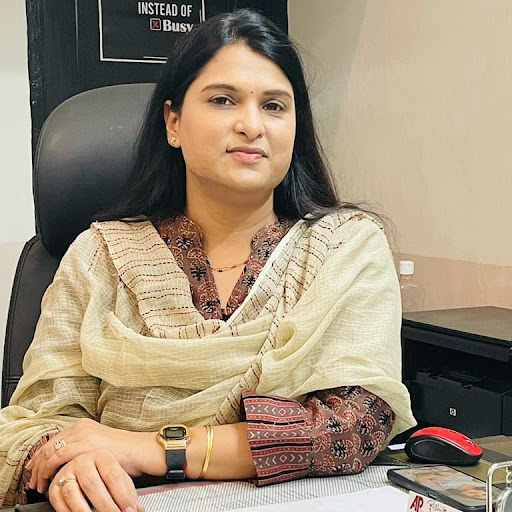If you or someone you love is struggling with persistent mood swings, unstable emotions, or difficulty maintaining relationships, it might be a sign of a personality disorder. At the Personality Disorder Treatment Center in Kanpur, under the guidance of Dr. Aradhana Gupta, one of the best clinical psychologists in Kanpur, individuals receive compassionate, evidence-based care to help them lead a balanced and fulfilling life.
🌿 Understanding Personality Disorders

A personality disorder is a type of mental health condition where a person’s thoughts, emotions, and behavior patterns deviate significantly from societal expectations, causing distress and problems in daily life. These disorders usually develop during adolescence or early adulthood and can affect one’s work, relationships, and emotional well-being.
Common types of personality disorders include:
- Borderline Personality Disorder (BPD) – Intense emotional instability, fear of abandonment, and impulsive behavior.
- Narcissistic Personality Disorder (NPD) – Excessive self-focus, need for admiration, and lack of empathy.
- Obsessive-Compulsive Personality Disorder (OCPD) – Perfectionism, rigidity, and control-oriented behavior.
- Avoidant Personality Disorder (AvPD) – Social inhibition and sensitivity to criticism.
- Antisocial Personality Disorder (ASPD) – Disregard for others’ rights and lack of remorse.
💠 Expert Personality Disorder Treatment in Kanpur

Dr. Aradhana Gupta, a renowned Clinical Psychologist in Kanpur, specializes in diagnosing and treating various types of personality disorders through a personalized and holistic approach. Her goal is not just to manage symptoms but to empower individuals to build emotional resilience and healthy interpersonal relationships.
🌸 Treatment Approaches by Dr. Aradhana Gupta
At Dr. Aradhana Gupta’s clinic, treatment plans are designed based on the individual’s specific needs and challenges. The therapies offered include:
- Cognitive Behavioral Therapy (CBT): Helps patients identify and change negative thought patterns.
- Dialectical Behavior Therapy (DBT): Especially effective for borderline personality disorder; focuses on emotion regulation and mindfulness.
- Psychodynamic Therapy: Helps patients understand unconscious motivations influencing behavior.
- Interpersonal Therapy: Improves relationship patterns and communication skills.
- Family Therapy: Helps family members understand and support the patient’s recovery journey.
💬 Why Choose Dr. Aradhana Gupta?

- Over a decade of experience in clinical psychology and counseling.
- Specialized in treating anxiety, depression, trauma, and personality disorders.
- Personalized, confidential, and compassionate care.
- Evidence-based psychological interventions for sustainable improvement.
- Supportive and non-judgmental environment for healing and growth.
🌼 Early Diagnosis & Support Can Make a Difference
Personality disorders often go unnoticed because symptoms can mimic other emotional challenges. If you notice signs such as emotional instability, impulsive decisions, fear of rejection, or difficulty maintaining relationships, seeking professional help early can greatly improve recovery outcomes.
If you’re searching for Personality Disorder Treatment in Kanpur, Dr. Aradhana Gupta offers professional psychological assessment, therapy, and guidance to help individuals regain emotional balance and confidence.
FAQs-
Q1. What are the symptoms of personality disorders?
Common symptoms include unstable relationships, impulsive behavior, mood swings, and difficulties managing emotions or understanding others’ perspectives.
Q2. Can personality disorders be cured?
While personality disorders may not have a “cure,” proper therapy can significantly reduce symptoms and help individuals lead productive, stable lives.
Q3. How long does therapy take for personality disorders?
Treatment duration varies based on the individual’s condition, but consistent therapy over several months can bring substantial improvement.
Q4. How can family members support a loved one with a personality disorder?
Families can support by understanding the disorder, encouraging therapy, and maintaining a non-judgmental, empathetic approach.

